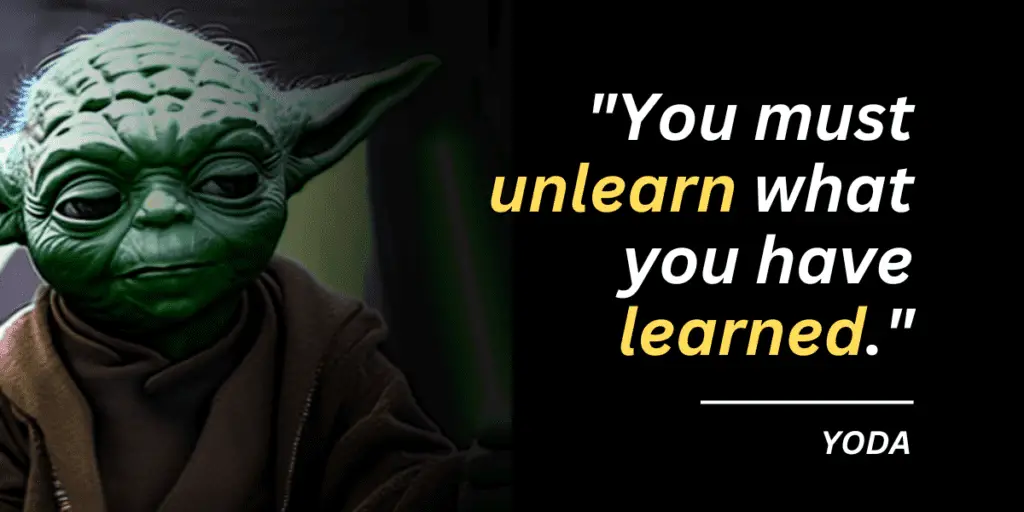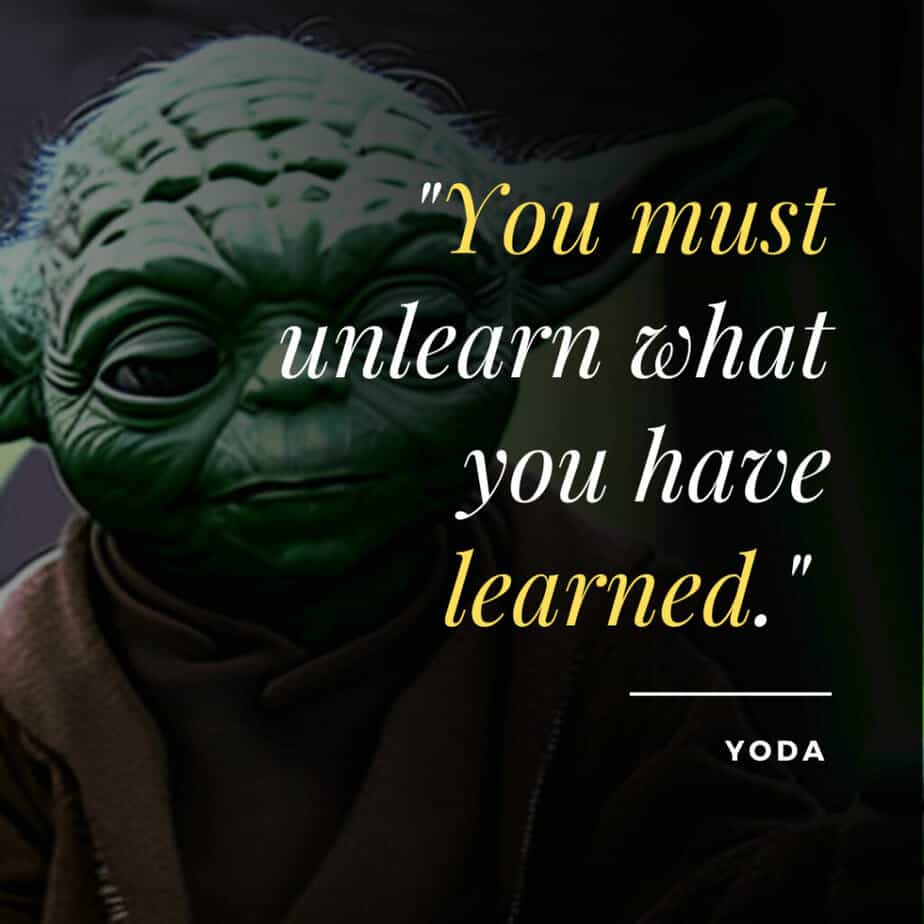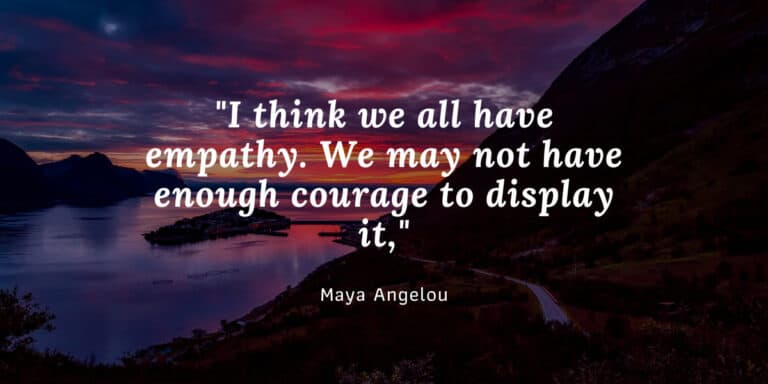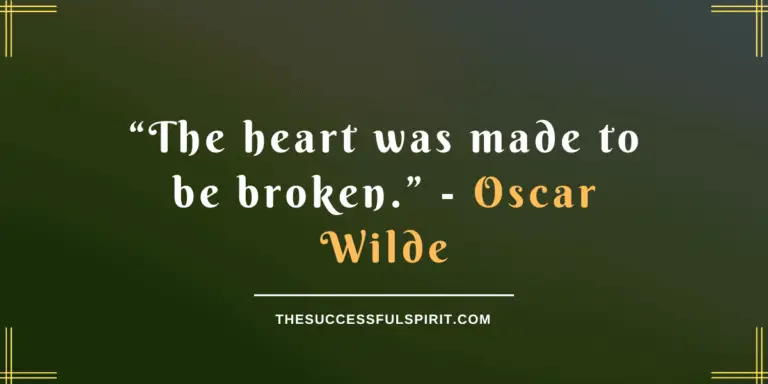You Must Unlearn What You Have Learned
In the Star Wars movies, Yoda is known for his wise and insightful words. One quote that has particularly resonated with people is, “You must unlearn what you have learned.” On the surface, this might seem like a confusing or even contradictory statement.
After all, isn’t learning supposed to be a good thing? However, upon closer examination, the message behind this quote becomes clear: sometimes, in order to move forward and grow, we need to let go of what we have learned and be open to new ideas and perspectives.

In this post, we’ll explore the meaning of this quote and why “unlearning” is so important in today’s world.
The Meaning of the “You must unlearn what you have learned” Quote
At first glance, the phrase “You must unlearn what you have learned” might seem counterintuitive. After all, we typically think of learning as a positive thing – a way to acquire new knowledge, skills, and abilities.
However, the phrase “unlearn” implies letting go of something that we have already learned. So what does Yoda mean by this?
One interpretation of the quote is that it’s a reminder to stay open-minded and flexible. In a rapidly changing world, it’s important to be able to adapt to new situations and challenges.
Sometimes, this means letting go of old ideas and beliefs that may no longer be relevant or accurate. By “unlearning” these things, we can make room for new knowledge and perspectives, which can help us to grow and evolve.
Another way to look at the quote is as a call to constantly question and reevaluate our beliefs and assumptions. As we go through life, we accumulate a lot of knowledge and experiences that shape our understanding of the world.

It’s important to be aware that our understanding is always limited and that there may be other ways of looking at things. By “unlearning” what we have learned, we can be open to new ideas and ways of thinking, which can help us to grow and develop in both personal and professional contexts.
The importance of unlearning
In today’s world, it’s more important than ever to be open to “unlearning” what we have learned. The pace of change is faster than ever, and new information, technologies, and ways of doing things are constantly emerging.
In order to stay relevant and competitive, it’s necessary to be able to adapt and learn new things quickly.
One way that “unlearning” can help us to adapt is by allowing us to let go of outdated or incorrect information. For example, if we continue to rely on old techniques or technologies that are no longer effective, we may fall behind in our field or industry.
By “unlearning” these things, we can make room for new and more effective methods and approaches.
In addition to helping us adapt to change, “unlearning” can also have other benefits. For example, it can help us to become more open-minded and flexible, which can improve our problem-solving skills and ability to think creatively.
It can also make it easier for us to learn new things, as we are not limited by our preconceived notions or biases. By “unlearning” what we have learned, we can be more receptive to new ideas and approaches, which can help us to grow and develop both personally and professionally.
Unlearning in Practice
So how do we go about “unlearning” what we have learned? Here are a few strategies and techniques that may be helpful:
- Reflect on your beliefs and assumptions: Take some time to think about the things you believe to be true and the experiences that have shaped your understanding of the world. Are there any beliefs or assumptions that you might need to reconsider or “unlearn”?
- Seek out new information and perspectives: One way to “unlearn” old ideas is to expose yourself to new information and perspectives. This could mean reading books, articles, or blogs from sources that challenge your existing beliefs or engaging with people who have different viewpoints from your own.
- Practice mindfulness: By being present in the moment and paying attention to our thoughts and emotions, we can become more aware of any automatic or habitual patterns of thinking that might be holding us back. This can help us to “unlearn” old habits and beliefs and replace them with new ones.
- Be open to change: It’s natural to feel resistant to change, but by being open and willing to try new things, we can become more receptive to new ideas and ways of doing things. This can make it easier to “unlearn” old habits and beliefs and embrace new ones.
While “unlearning” can be a powerful tool for personal and professional growth, it’s important to recognize that it can also be challenging.
It can be difficult to let go of long-held beliefs and habits, and it can be uncomfortable to confront new ideas and perspectives that challenge our existing understanding of the world. With practice and persistence, it is possible to “unlearn” what we have learned and embrace new ways of thinking and being.
Conclusion
In summary, the quote “You must unlearn what you have learned” from Yoda reminds us of the importance of staying open-minded and flexible, and the value of questioning and reevaluating our beliefs and assumptions.
In a rapidly changing world, “unlearning” what we have learned can help us to adapt and stay relevant, as well as to become more open-minded, flexible, and receptive to new ideas and ways of doing things.
While “unlearning” can be challenging, it is a powerful tool for personal and professional growth. So the next time you come across something that challenges your existing beliefs or assumptions, take it as an opportunity to “unlearn” what you have learned and embraced new ideas and perspectives. Who knows what new insights and opportunities may await you on the other side?






